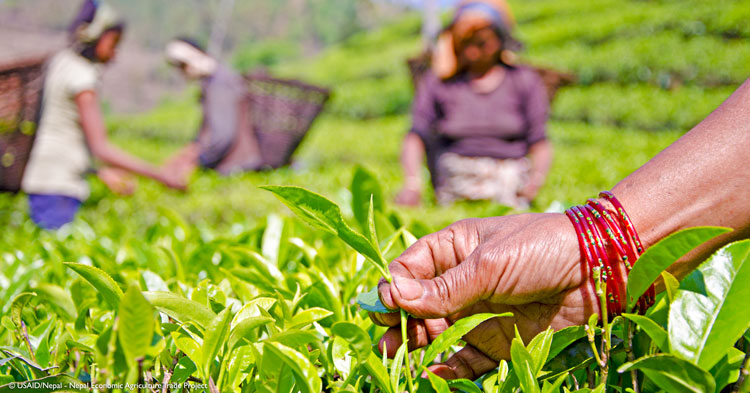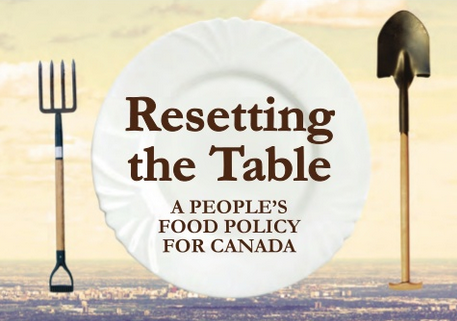What is Food Sovereignty

"Food Sovereignty is the right of peoples to healthy and culturally appropriate food produced through ecologically sound and sustainable methods, and their right to define their own food and agriculture systems." La Via Campesina - This global peasant movement, unites people to fight injustice in the food system. By fighting for women’s rights and against land grabs and the spread of GMOs, La Via Campesina have defined the struggle for food sovereignty.
|
FSC’s policy platform, Resetting the Table: A People’s Food Policy for Canada, provides a detailed account of what food sovereignty could look like in Canada. |
Food security is a goal while food sovereignty describes how to get there. They differ in some key ways.
- Food sovereignty is rooted in grassroots food movements.
- Food sovereignty highlights the need for a democratic food system, one that involves inputs from citizens as well as producers.
- Food security is concerned with the protection and distribution of existing food systems.
Seven Pillars of Food Sovereignty
The first six pillars were developed at the International Forum for Food Sovereignty in Nyéléni, Mali, in 2007. The seventh pillar – Food is Sacred - was added by members of the Indigenous Circle during the People’s Food Policy process.
1. Focuses on Food for People
2. Builds Knowledge and Skills
3. Works with Nature
4. Values Food Providers
5. Localizes Food Systems
6. Puts Control Locally
7. Food is Sacred
|
Suggested resources:
The People's Food Policy Project: Introducing Food Sovereignty in Canada by Cathleen Kneen (former chair of Food Secure Canada)
International Planning Committee on Food Sovereignty
Farmers Foodies and First Nations: Getting to Food Soverignty in Canada by Annette Desmarais and Hannah Wittman


